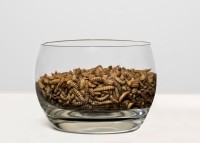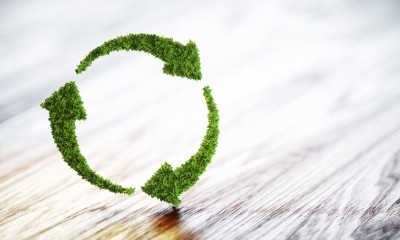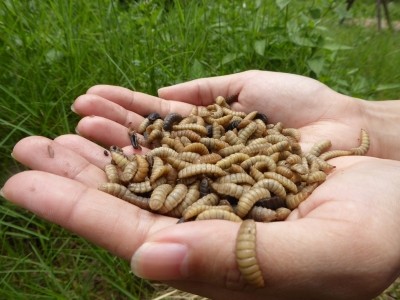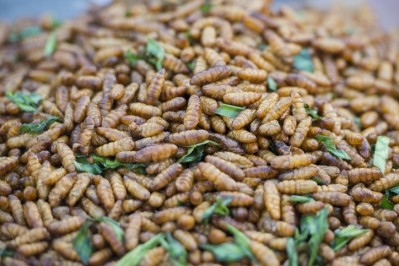Canadian start-up turns to bugs to recycle food waste into feed

The interest in raising black soldier flies to produce a feed protein started from the understanding that there is a lot of food waste that needs to be mitigated, said Cédric Provost, president and co-founder of Entosystem. The Canada-based company had limited production in 2017 and moved into a larger space at the end of 2018.
“We’re wasting 60% the food produced – it’s a huge amount of food waste,” he told us regarding results from a study on food waste in Canada completed by Second Harvest. “We wanted to find a way to take that food waste and reintroduce it as a feedstock.”
“We’re saving food waste and we’re working on the circular economy,” he added. Feeding the brewery or pre-consumer food waste to black soldier fly larvae produces a protein source and fertilizer.
Entosystem raised more than $1m in a recently closed funding round, said Provost. And the company is seeing support and interest from city and government officials.
Expanding insects, feed production
Currently, the pilot production facility in Sherbrooke, Quebec is operating at about 25% of its total capacity, said Provost. The goal is to be at full production, generating about 500 kilos of dry larvae by November.
The insects are predominately fed grain by-products at the moment, said Christopher Warburton, chief science officer with Entosystem. However, the company is planning to expand the range of feed sources for its insects into other pre-consumer wastes.
“We’re recycling at about 2 tons a day and at full capacity, it will be 8 tons a day."
The company is in the process of expanding its insect colony and adding staff and equipment, said Provost. “We’ve got the customers and the money – we just need to scale up production,” he added.
The next step of the planned expansion is anticipated to happen in the next two years, by 2021, and grow insect production to a level that uses about 150 tons of food waste a day, the company reported. On the production side, the growth would generate about 5 tons of insect “flour” and 7 tons of organic fertilizer a day.
Entosystem presells the insect larvae that it is producing at the moment to buyers in Quebec, said Warburton. However, the goal is to be able to expand the company’s geographic footprint as production increases.
At this stage, the company is generating whole, dried larvae, he said. But, it has started looking into defatting and processing the larvae.
Going forward, Entosystem is interested in producing for the feed market and the company is aware of the traction that insect protein is developing as a feed ingredient, he said.
However, both said, more scale in production would be needed to generate enough insect protein to provide a feed ingredient for a large poultry producer.
The company, however, has started running trials using its insect product in poultry feed, added Provost.
Additionally, the insect-producer has established partnerships with the Sherbrooke and Laval universities, along with other collaborators to support its ongoing efforts, according to company information.













